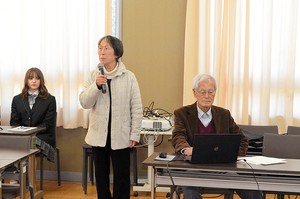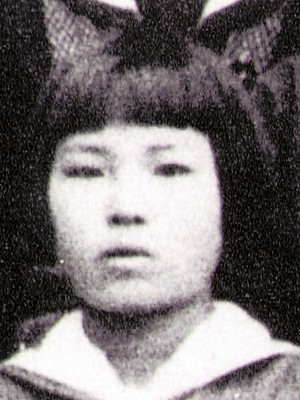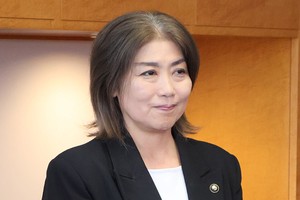THE ASAHI SHIMBUN
September 15, 2022 at 14:19 JST
 Defense Minister Yasukazu Hamada receives a welcome by a U.S. honor guard at the Pentagon on Sept. 14. (Naoki Matsuyama)
Defense Minister Yasukazu Hamada receives a welcome by a U.S. honor guard at the Pentagon on Sept. 14. (Naoki Matsuyama)
WASHINGTON--In his first face-to-face meeting with the U.S. defense secretary, Defense Minister Yasukazu Hamada pledged to comprehensively strengthen Japan’s defense, including a first-strike capability against enemy bases preparing to launch an attack on Japan.
The start of his meeting here on Sept. 14 with Defense Secretary Lloyd Austin was open to media representatives and Hamada said, “What is most important is to possess the will and capability to protect one’s own nation by oneself.”
He added that the defense budget would be greatly increased to follow through on Kishida’s promise to substantially bolster Japan’s defense capabilities. Plans call for doubling defense spending within five years.
Austin said, “China's coercive actions in the Taiwan Strait and in the waters surrounding Japan are provocative, destabilizing and unprecedented.”
He added, “Let me also reaffirm our unwavering commitment to the defense of Japan. And that includes our commitment to credible and resilient extended deterrence, using the full range of our conventional and nuclear capabilities.”
Hamada was named defense minister in Prime Minister Fumio Kishida's Cabinet reshuffle in August, bringing experience in defense matters after having previously served as defense minister in 2008 for about a year.
According to Defense Ministry officials who briefed reporters, Hamada explained the ministry’s efforts toward revising the National Security Strategy (NSS) by year-end. Austin expressed his strong support for that effort.
The two defense ministers also confirmed that the direction of both nation’s strategies was in synch.
They discussed China’s military exercise in August in which five ballistic missiles landed in waters within Japan’s exclusive economic zone, criticizing that launch as a major threat to Japan’s national security and the safety of the Japanese people.
They also confirmed the importance of peace and stability in the Taiwan Strait and agreed to encourage a peaceful resolution to issues related to the strait.
At a news conference after his meeting with Austin, Hamada said, “It was extremely heartening to receive the strong support from Secretary Austin for our efforts to comprehensively strengthen our defense capabilities.”
He added that the results of the meeting would be applied to the compiling of the new NSS and future debate about strengthening Japan’s defense.
Hamada and Austin also discussed the temporary deployment to the Maritime Self-Defense Force’s Kanoya Air Base in Kagoshima Prefecture of the MQ9 Reaper drone for surveillance and intelligence gathering.
The two agreed that the intelligence obtained by the drone would be jointly analyzed.
Hamada and Austin also agreed to begin consideration of joint research on missile interception technology to deal with hypersonic missiles being developed by China.
(This article was written by Naoki Matsuyama and Kayoko Geji.)




















A peek through the music industry’s curtain at the producers who harnessed social media to help their idols go global.
A series based on diplomatic documents declassified by Japan’s Foreign Ministry
Here is a collection of first-hand accounts by “hibakusha” atomic bomb survivors.
Cooking experts, chefs and others involved in the field of food introduce their special recipes intertwined with their paths in life.
A series about Japanese-Americans and their memories of World War II